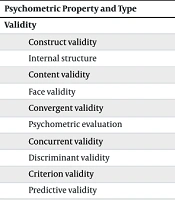Dear Editor,
Skin whitening has long been a popular trend among Black Africans and those living in predominantly White countries. It is often believed that lighter skin attracts greater attention and societal acceptance. This practice spans various demographics, including men and women of diverse ages, educational backgrounds, and socioeconomic statuses. The use of skin-lightening cosmetics has become a significant public health issue in dermatology, disproportionately affecting communities of color worldwide (1). The desire to lighten dark skin is rooted in both colonial history and deeply ingrained cultural biases. This bias is often linked to low self-esteem, as people feel pressured to conform to beauty standards that favor lighter skin tones (2). In Nigeria, skin-whitening creams are frequently used for various reasons, including cultural beliefs, the pursuit of higher self-esteem, and the desire to resemble Western ideals (3). Given that many countries have banned or tightly regulate the import and sale of skin-bleaching products, skin bleaching has emerged as a serious public health concern (4).
The demand for skin-lightening products continues to grow, driven primarily by women—and to a lesser extent, men—seeking a lighter complexion, often motivated by the perceived social advantages and elevated status associated with fairer skin (5). The prevalence of skin bleaching in Africa is particularly alarming, with Nigeria leading with a rate of 77%, followed by Ghana, South Africa, Senegal, and Congo-Brazzaville, with rates of 39%, 32%, 50%, and 66%, respectively (4). Recent studies in various Nigerian populations have reported skin bleaching prevalence rates of 40.9%, 52.7%, and 32.0% (6-8). This widespread practice, recently labeled a "national health emergency" by the National Agency for Food and Drug Administration and Control (9), is largely fueled by media advertising, especially when promoted by celebrities who are viewed as role models and symbols of social acceptance, thereby influencing people's desire to replicate their appearance.
Most skin-whitening products available in the market lack proper labeling, concealing the presence of harmful ingredients such as hydroquinone, mercury, and corticosteroids. Consequently, consumers who purchase these products to follow the popular trend of achieving lighter skin may be unaware of the severe health risks associated with these toxic substances, endangering their well-being. The use of these products has been linked to several serious health conditions, including dermatitis, steroid acne, skin discoloration, changes in skin thickness, inflammatory diseases, adrenal insufficiency, diabetes, nephrotic syndrome, mercury poisoning, organ damage, delayed wound healing, and wound infections. Furthermore, when melanin levels are reduced due to bleaching, the skin becomes more vulnerable to ultraviolet (UV) radiation, increasing the likelihood of sun damage and the risk of illnesses such as melanoma. Patients with squamous cell carcinoma and other skin cancers have often reported long-term use of skin-lightening products (4).
In response to concerns over the harmful chemicals in conventional skincare products, many individuals are turning to "organic skincare products," which come in various forms such as soaps, scrubs, creams, oils, and masks. These products are crafted from natural ingredients like lime juice, honey, turmeric, rice powder, papaya, goat milk, yogurt, African black soap, and essential oils. However, some local manufacturers unscrupulously add steroids and other harmful chemicals, such as bleach, to their products, while falsely promising rapid skin-lightening effects. This unethical practice has become widespread, with these producers even opening spas and offering training sessions to others, further jeopardizing customers' health. It is crucial to conduct thorough investigations into the health risks and consequences associated with the production processes of organic skincare products, particularly those from small-scale producers. These issues represent significant threats to consumer health both in the immediate and long term and could also have far-reaching environmental implications that may surface in the future (10).
It is high time for authorities to take decisive action by banning and regulating the production, importation, and sale of skin-whitening products. Additionally, a sustained public awareness campaign, particularly through media channels, is essential to educate consumers on the harmful health effects of these products to protect them from their detrimental impacts. Advertisements that reinforce the notion that fair skin represents the ideal standard of beauty, especially those using fair-skinned models to promote cosmetics on the black market, should be condemned. Instead, we should revive and embrace the empowering message that "Black is Beautiful," promoting self-acceptance and love for one’s natural skin tone (6). A collaborative effort involving individuals, communities, production companies, and the government is essential to safeguard public health by ensuring access to safe skincare products. Furthermore, producers and sellers of hazardous skincare products should face legal consequences as a deterrent, preventing further harm caused by these products and protecting the health of the population.
